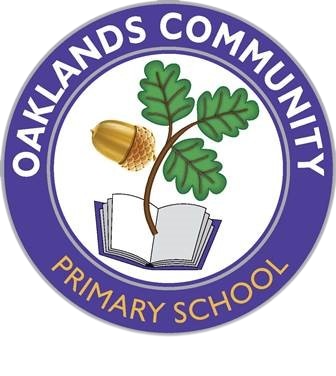Learning at Home
Research has shown that homework can be an important part of learning. Providing children with the opportunity to think about what they have learnt in school and to practise and extend their skills. Reflecting on work covered is a vital part of the learning process. Homework also helps children to develop the skills of planning, information retrieval and time management.
Staff, governors and parents at Oaklands feel it is important that children have the time to take part in other activities outside of school and to have opportunities to play with friends and go on family outings.
What is the purpose of homework?
- To enable children to consolidate and apply skills taught in school, and to extend their school learning.
- To further extend the partnership between school and home by giving parents and carers the opportunity to share in their children’s learning.
- To encourage children to develop confidence and self-discipline, and give them opportunities to become independent learners.
- To prepare older children for the increasing patterns of homework which they will experience at secondary school and beyond.
What is homework?
Homework is any work or activity which pupils are asked to do outside lesson times, either on their own or with parents or carers. It may take the form of: reading, writing, learning number facts, multiplication tables, spellings, playing a game, practising a skill or working together on an extended project.
What can you expect from the school?
We ensure that all tasks are age appropriate and we endeavour to adapt any task set so that all children can contribute in a positive way. Expectations about homework are outlined in termly curriculum leaflets and shared with parents to ensure they are clear and understood by all.
What can parents and carers do to help?
- Provide a suitable place for your child to do the homework and be ready to support them.
- Make it clear to the child that homework is important, and support the school in explaining how it can help the learning process.
- Encourage your child to work independently as far as possible.
- Sign the reading record every time your child reads. If there are any difficulties as a result of the homework your child brings home, please liaise with the class teacher.
|
Year Group |
Reading |
Spelling |
Homework task |
|
EYFS |
Daily reading of books linked to phonics (10 minutes) |
Spelling tricky words when ready |
Phonics or Maths based activity (15 minutes) |
|
1 |
Daily reading of books linked to phonics (10 minutes) |
Daily practise of 10 weekly spellings |
Maths, English or Topic based activity (15–20 minutes) |
|
2 |
Daily reading of books linked to phonics or book band level (10–15 minutes) |
Daily practise of 10 weekly spellings |
Maths, English or Topic based activity (15–20 minutes) |
|
3 |
Daily reading (15–20 minutes) |
Daily practise of 10 weekly spellings |
Maths, English or Topic based activity (20 minutes) |
|
4 |
Daily reading (15–20 minutes) |
Daily practise of 10 weekly spellings |
Maths, English or Topic based activity (20 minutes) |
|
5 |
Daily reading (20+ minutes) |
Daily practise of 10 weekly spellings |
Maths and English task or topic-based activity (30 minutes) |
|
6 |
Daily reading (20+ minutes) |
Daily practise of 10 weekly spellings |
Maths and English task or topic-based activity (30 minutes) |
For further information regarding activities that the government suggests children should take part in, please download this document - My Activity Passport
